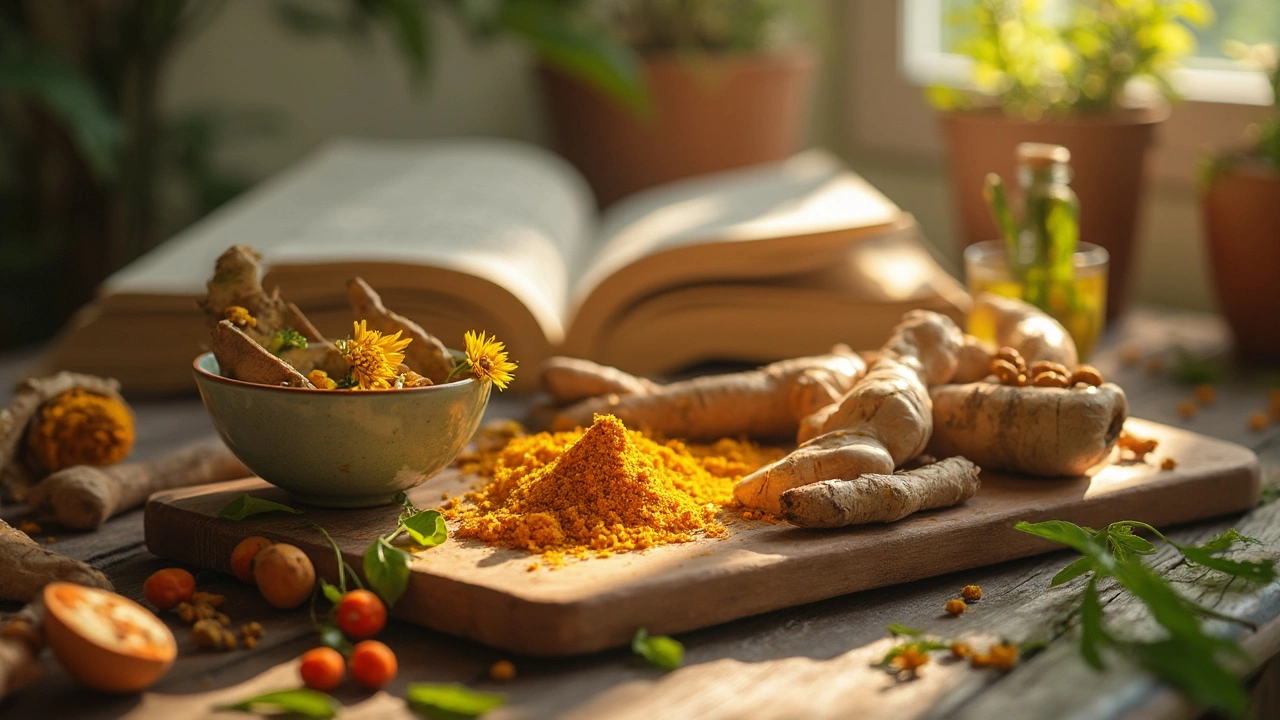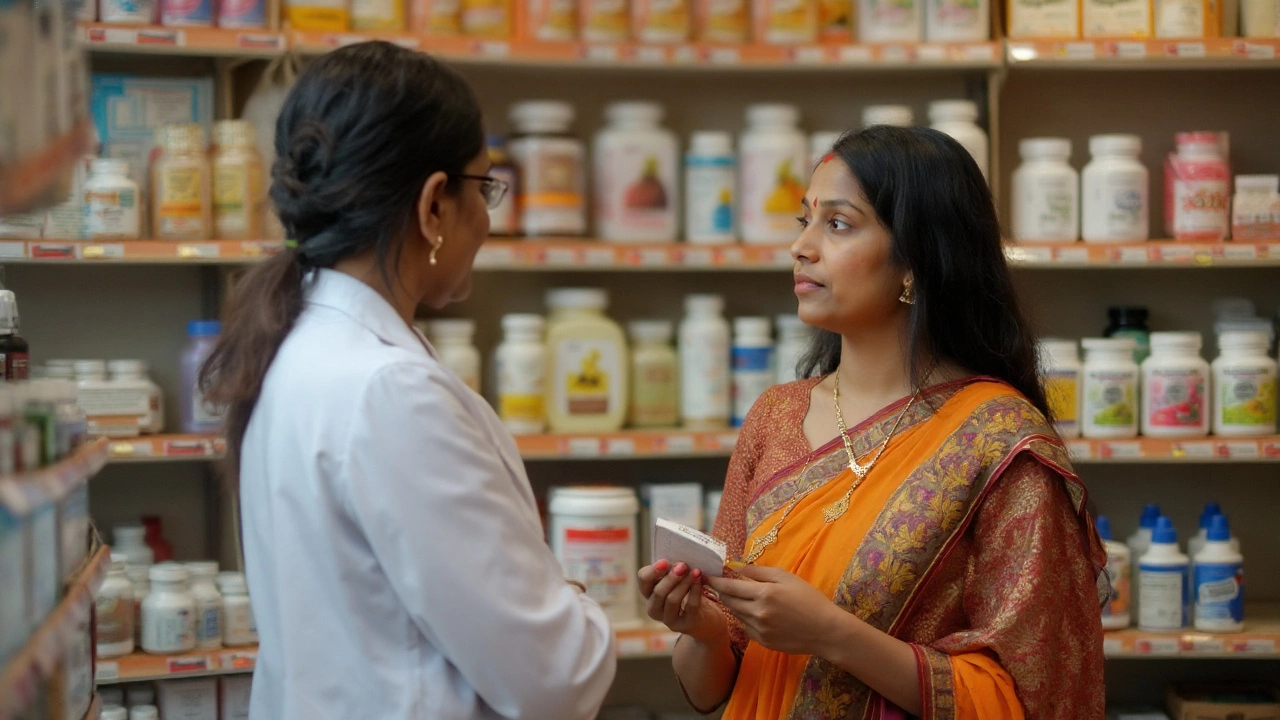
Here’s something wild—a healthy liver can actually regrow itself. But if you pile on junk food, alcohol, or let stress run the show, your liver starts raising red flags. People hear promises that herbs can fix everything, but is there really one that stands out for liver repair?
If you ask any natural health pro, milk thistle almost always tops the list. It’s not just old-school folk wisdom; loads of real studies back it up. This purple-flowered plant has an ingredient called silymarin, which basically acts like a shield and repair kit for liver cells.
But before you sprint to the health store, there’s a trick to getting real results. The right dose and quality matter, because supplements can be hit or miss. Plus, even the best herb isn’t magic—you still need to let go of habits that put your liver under attack in the first place. Let’s break down what works, what’s hype, and how you can give your liver the best shot at healing.
- Why the Liver Needs Extra Care
- Meet Milk Thistle: The Star Herb for Liver Repair
- How to Use Herbal Supplements Safely
- Lifestyle Moves That Help Herbs Do Their Job
Why the Liver Needs Extra Care
Your liver isn’t just another organ. It’s the body’s main filter, handling everything from pizza grease and energy drinks to prescription meds and last night’s tequila shots. If you take a peek at what it does, you’ll see why it gets worn out so easily.
Every bit of blood leaving your stomach and intestines passes through your liver. That means it has first dibs on cleaning out toxins, waste, and all those things you really don’t want floating around. It works overtime to turn bad stuff into harmless stuff and makes sure your body can handle the overload of modern life.
Here’s what’s wild: the liver juggles over 500 functions. The biggest ones?
- Breaking down and getting rid of toxins (alcohol, drugs, chemicals)
- Processing nutrients so your body can use them
- Storing vitamins and sugar for energy backups
- Making proteins your blood needs
- Helping your blood clot when you get hurt
Most folks don’t realize everyday habits—like popping painkillers, boozy nights, or too much processed food—can push the liver past its limit. If it gets damaged, you won’t feel much at first, but problems sneak up. Signs can show up as tiredness, yellowish skin (yep, that’s jaundice), bloating, or just feeling run down. Ignoring these can turn small issues into big ones, like fatty liver disease or even cirrhosis.
Here’s a quick look at just how common some liver problems actually are:
| Liver Issue | % of Adults Affected (USA) |
|---|---|
| Non-alcoholic Fatty Liver | ~25% |
| Liver Cirrhosis | 1-2% |
| Alcohol-Related Liver Disease | ~2-6% |
So yeah, giving your liver some backup isn’t just smart—it’s necessary, especially if you care about how you feel long-term. That’s where adding a proven herb for liver repair (alongside common-sense lifestyle moves) comes in. But first, you need to know which herb isn’t just hype.
Meet Milk Thistle: The Star Herb for Liver Repair
If you Google “herb for liver,” milk thistle shows up everywhere, and honestly, there’s good reason for it. Scientists have studied this prickly plant for years, especially the power-packed ingredient in its seeds—silymarin. Silymarin acts kind of like a bodyguard for your liver cells, blocking some toxins and jumpstarting repair after damage from booze, fatty foods, or certain meds.
Let’s talk proof. Milk thistle isn’t just folk medicine—some hospitals in Europe use it to treat serious poisoning, like when someone accidentally eats deadly mushrooms. That’s because silymarin can limit damage and actually help the liver bounce back if it’s been hit hard. A 2022 review in ‘Phytotherapy Research’ looked at over 20 studies. People with liver disease who took milk thistle for several months saw drops in key liver markers (think ALT and AST—these shoot up if your liver’s hurting).
| Fact | Details |
|---|---|
| Most studied form | Silymarin extract |
| Common dose | 140 mg, 2-3 times a day |
| Time to see benefits | 2-6 months of use |
| Main benefits | Reduces liver cell damage, lowers enzymes, might help with fatty liver |
Here’s how milk thistle fits into daily life. You can buy silymarin capsules, or sometimes teas, but capsules usually pack more punch. If your doctor’s okay with it (especially if you’re taking other medications), the usual dose is 140 mg two or three times a day. Don’t expect instant miracles—it often takes a couple of months before your bloodwork shows real change.
Milk thistle is generally safe, but nothing’s perfect. Some folks get an upset stomach, and since supplements aren’t as tightly regulated as prescription meds, quality can vary. Always look for brands that have third-party testing on the label.
Bottom line? This herb isn’t a pass to hit the drive-thru every night or drink a six-pack. But science really does back up its value, especially for anyone asking how to give their liver a fighting chance.

How to Use Herbal Supplements Safely
If you’re thinking about grabbing milk thistle or any other herb for liver health, don’t just go by the label. Herbs can help, but you’ve got to be smart about how you use them. Unlike prescription meds, herbal supplements aren’t as closely checked by the FDA, so quality is all over the place.
The #1 rule? Never treat supplements like candy. Here’s what works for real people:
- Always check with your doctor first, especially if you take regular meds. Herbs can mess with prescriptions for cholesterol, diabetes, or blood thinners.
- Only buy from brands that show third-party testing. Some bottles don’t even have the stuff they claim.
- Read up on the right dosage. With milk thistle, studies often use between 140–420 mg of silymarin a day, but your needs might be different.
- Stick to the basics: don’t mix a dozen liver health pills at once. Start with one and see how your body reacts.
- If you’re pregnant, nursing, or have chronic health issues, double-check before starting anything new.
One 2023 analysis found that over 25% of herbal supplements tested worldwide didn’t even have the main ingredient listed, or had something extra you don’t want in your body. Here’s a quick look:
| Herb Tested | % Didn’t Match Label |
|---|---|
| Milk Thistle | 22% |
| Other Liver Herbs | 29% |
Dr. Linda Yancey, an infectious disease expert, once said,
"Supplements may look harmless, but they can absolutely interact with your medications and mess up your liver test results—always let your doctor know what you’re taking."
Bottom line: if you want real results from herbal supplements for your liver repair, stick to these basics and talk to a pro. Don’t risk your health on a pretty bottle or internet hype.
Lifestyle Moves That Help Herbs Do Their Job
Herbs like milk thistle won’t do much if your daily choices keep hammering your liver. Think of it like patching a leaky pipe but refusing to turn off the water. Real change comes when you give that repair crew some backup. Here’s what actually helps:
- Cut back on alcohol. No surprise here. Even weekend drinks pile up. Slashing your intake (or taking breaks) lets your liver catch its breath.
- Eat for your liver. Go for whole foods, not packaged snacks. Leafy veggies, beets, and garlic are clutch—not fancy, but they deliver key nutrients your liver needs to detox stuff out.
- Watch your meds and supplements. Some painkillers (hello, acetaminophen) and even natural supplements can stress the liver when overused. If you’re already taking a herb for liver support, keep your doctor in the loop.
- Stay hydrated. Old tip, still true. Water helps move toxins out, and your liver thanks you every time you skip the soda and pour a glass of water instead.
- Move your body. You don’t have to run a marathon, but a daily walk or regular exercise bumps up blood flow and stops fat from building up in your liver.
If you want a snapshot of what really matters, check this out:
| Habit | Impact on Liver |
|---|---|
| Excess alcohol | Major stress—slows repair |
| Processed foods | Increases fatty liver risk |
| Regular exercise | Improves function, reduces fat |
| Hydration | Assists detox |
| Overusing meds | Can damage cells |
Pairing these moves with a solid herbal supplement makes you way more likely to see results. Most folks notice less bloating, better energy, and improved digestion once they lock in these habits. If you want your liver to bounce back, no single herb or pill beats taking real care of your body.








